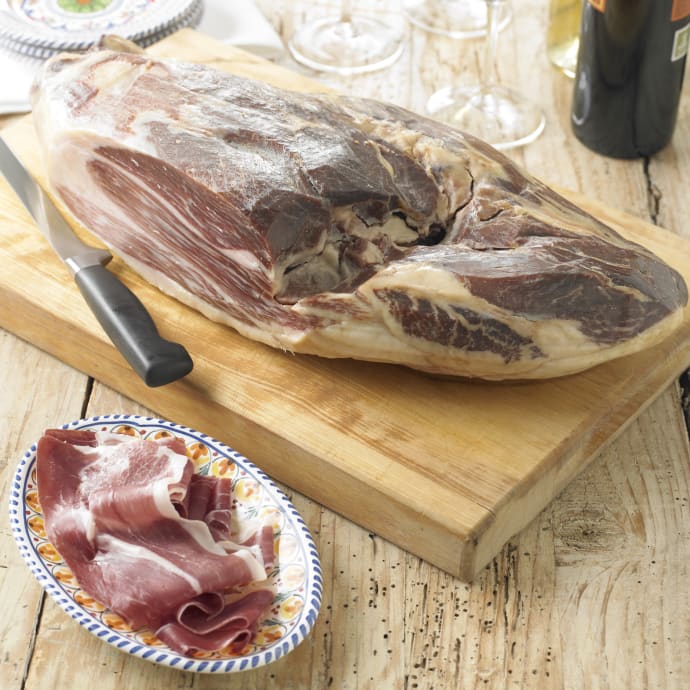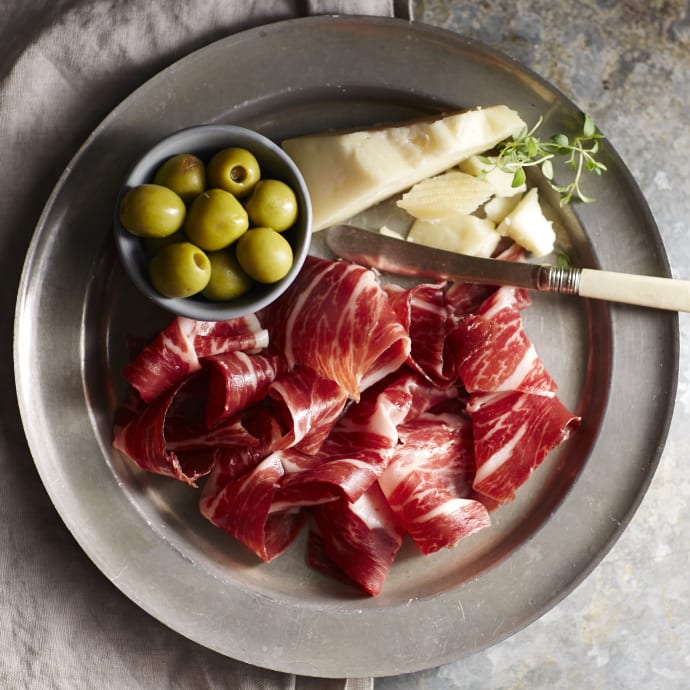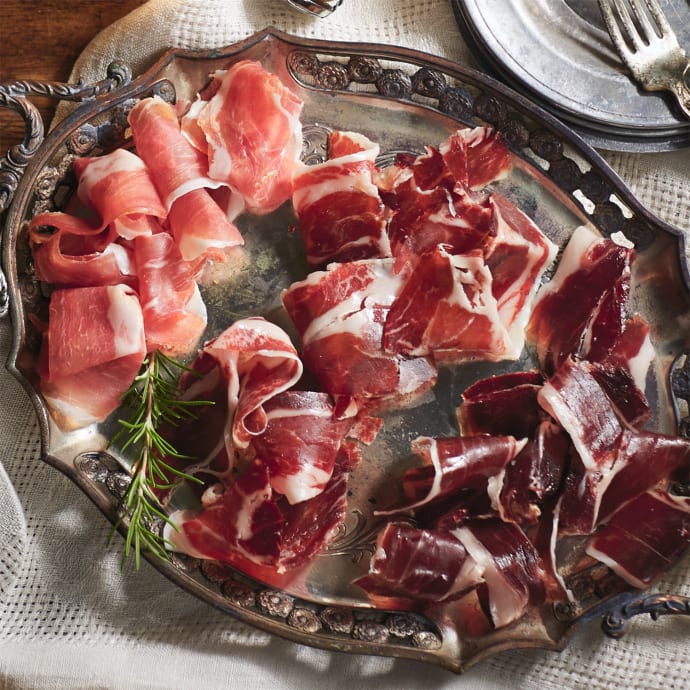Leslie Crawford
Christopher Columbus carried it on his second voyage to the Americas. Hernando de Soto, discoverer of Florida, would not have left home without it. George Washington made it on his farm in Mount Vernon.
Today, sadly, Americans are denied a Spanish delicacy enjoyed by their forebears. It is against US law to import jamón ibérico - the hind leg of an Iberian pig, hoof attached, swaddled in fat, covered in a thin green layer of protective mould, occasionally sprouting wiry black pig hair - because Spain does not have a single slaughterhouse that conforms to the regulations of the US Department of Agriculture.
While its appearance may offend more sensitive souls, the taste of jamón ibérico inspires a cult-like devotion among international foodies. This caviar of cured hams gets its sweet, nutty flavour because Iberian pigs are allowed to roam the oak forests of western Spain where they feast on nothing but wild acorns.
Devotees include Alain Senderens, chef of the Michelin three-star Lucas Carton restaurant in Paris, and Joel Robuchon, a chef whose bespoke hams are tagged and cured at Carnicas Joselito in the town of Guijuelo, two hours west of Madrid. Joselito hams cost between $600 (£310) and $1,000, with a minimum purchase of 50. There is a five-year waiting list and no secondary market.
Another waiting list is building up at tienda.com, an online purveyor of Spanish food based in Williamsburg, Virginia. For a $250 deposit, customers get the right to buy a jamón ibérico when it finally becomes legal in the US.
Don Harris, a former US navy chaplain who runs Latienda with his family, says he has 250 investors on his books. "It has become the thing," he says. "That obscure object of desire which Americans just can't get."
Some impatient Americans have broken the law in the quest to smuggle a few slices of jamón ibérico past the "beagle brigade" at US customs.
But the penalties are stiff, and the chances of being caught, since September 11 2001, are much greater than before. Mr Harris says one Californian woman was fined $2,000 for trying to smuggle in a chorizo ibérico - not even the real ham. She got off lightly. Jamón smugglers face federal prosecution, 10-year jail sentences and $50,000 fines.
Fortunately, the taste of jamón ibérico, sliced thinly and spread over bread rubbed with tomatoes and olive oil, may soon cease to be an illicit pleasure in the US.
Mr Harris has reached an agreement with Covap, one of the four top producers of jamón ibérico in Spain, which will supply Latienda with jamones as soon as its new abattoir in Córdoba is certified by the US Department of Agriculture.
"We don't have a firm date yet, but we expect Covap to clear the US regulatory hurdles in the first four months of 2005," Mr Harris says. With the curing of ibérico ham taking from 18 months to three years, he expects to be able to import his first jamones ibéricos in July 2007.
The writer is the FT's Madrid bureau chief.

 SHIPS FREE
SHIPS FREE SHIPS FREE
SHIPS FREE SHIPS FREE
SHIPS FREE BEST SELLER
BEST SELLER BEST SELLER
BEST SELLER BEST SELLER
BEST SELLER BEST SELLER
BEST SELLER






